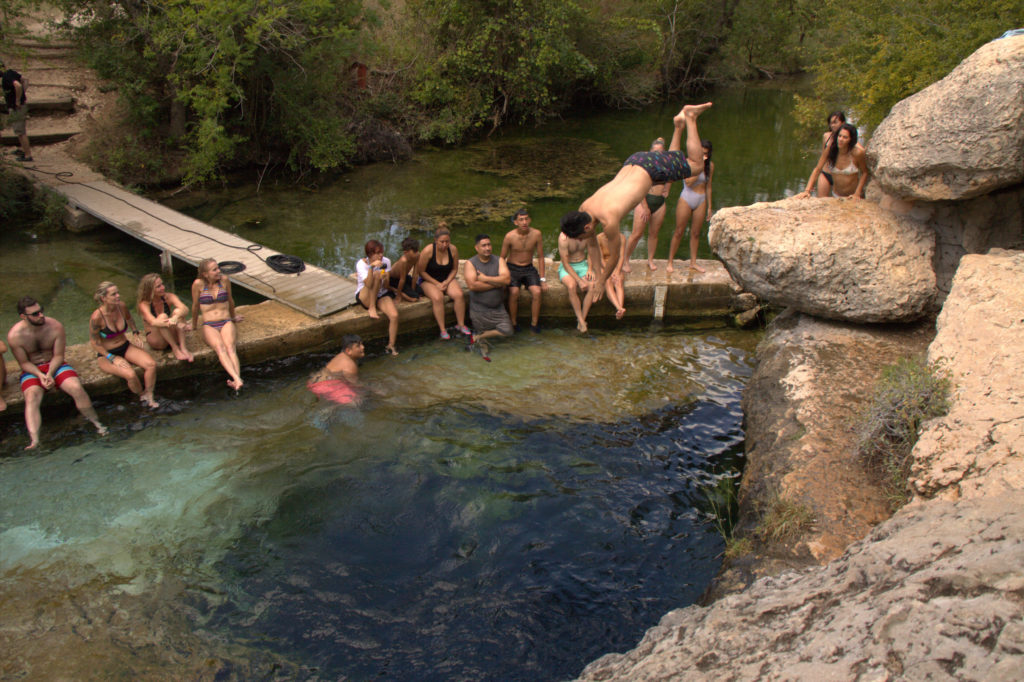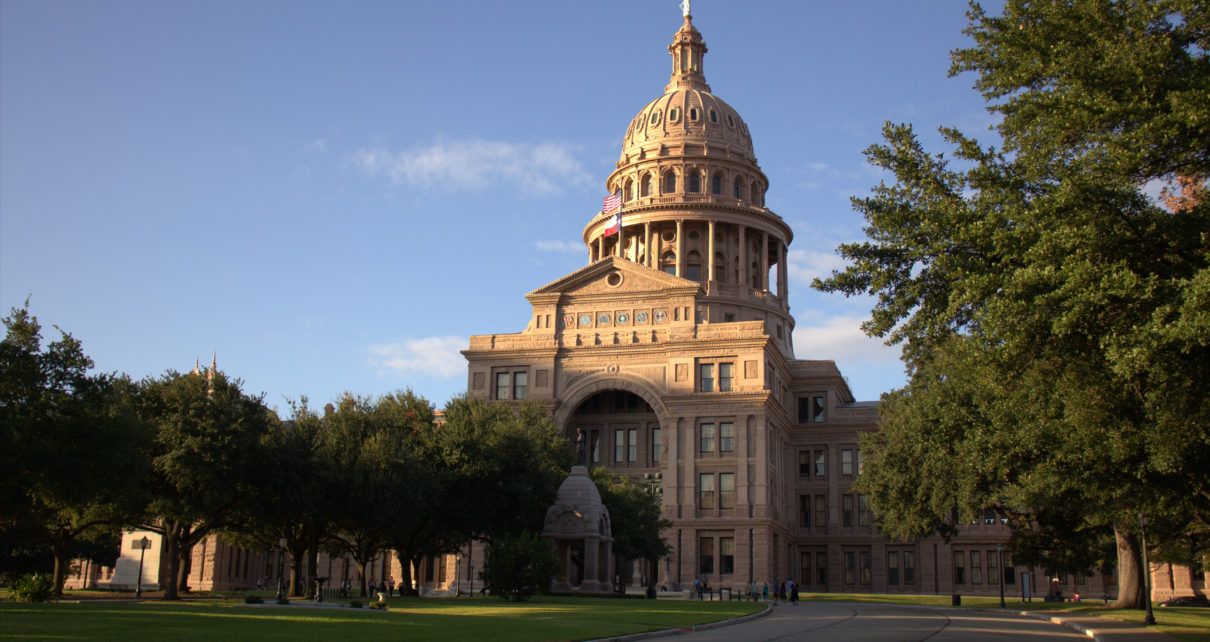This story has been updated as of October 25, 2019.
The Permian Highway Pipeline is slated to run 430 miles through Texas, but a coalition of environmental organizations, local governments and private landowners are standing in the way to protect their land, water and future.
In 1996 Richard Kinder left his job as President and COO of Enron Corporation; today he is the richest man in Houston, TX. Kinder started his next company by gathering investors to buy Enron Liquids Pipeline LP. The oil and gas pipeline company that had previously been part of Enron was renamed Kinder Morgan. Five years later, Enron filed the largest Chapter 11 bankruptcy in history after their stock dropped from about $90 a share to pennies in a massive fraudulent accounting scandal. Bethany McLean, then a journalist for Fortune Magazine, was one of the first to ask questions about Enron, and later co-wrote a book about the company’s rise and fall called The Smartest Guys in the Room. The smartest guy, apparently, was Richard Kinder, since his career wasn’t affected by the Enron scandal, and he is now the “Energy Patch King,” according to a Wall Street Journal profile of Kinder from 2011.
About a 500-mile drive west of Houston, the Permian Basin of West Texas and parts of New Mexico is America’s hottest oil and gas drilling site. The fracking boom has produced so much natural gas that the oil and gas companies cannot transport it all to consumer markets, so companies often burn the excess gas onsite in a practice called “flaring.” This practice releases greenhouse gases such as CO2 and methane and toxic carcinogens, including benzene, that have been linked to a variety of public health hazards, according to a study from Scientific Research Publishing. Flaring has come at a cost to local public health, to the oil and gas company’s reputations and their bottom lines, so their solution is simple: more pipelines.
The Permian Highway Pipeline, or PHP, is one of many newly proposed pipelines to bring gas from the Permian Basin to the Texas Gulf Coast. The 430-mile pipeline is planned to carry 2.1 billion cubic feet per day of natural gas from Waha, TX to the Houston area. The route cuts through the Texas Hill Country between San Antonio and Austin, where a number of cities, businesses, community and environmental groups have expressed opposition to the proposed project.
‘Move the Pipeline, Save the Water’
“We are not gonna roll over and let them do this, even though all the laws are stacked in their favor,” said David Baker, director of the Wimberley Valley Watershed Association, one of the organizations that signed onto the Move the Pipeline, Save the Water campaign. According to Kinder Morgan’s FAQ page released in August, the pipeline is designed to transport natural gas in its gaseous state, so it is lighter than air and if a leak occurred, the gas would rise and not mix with the water. Baker, however, isn’t convinced, saying “Kinder Morgan has in many cases switched their gas lines to oil, to gasoline, to other refined products or raw crude products. They do that all the time. That is one of our concerns that they’re calling this the Permian Highway Pipeline because they want to have multiple lines with multiple different types of hydrocarbons going through it and we think this is too sensitive an area.”
Hays County, environmental groups and landowners announced their intent to file a lawsuit if the PHP gets permits to proceed under the Clean Water Act and Endangered Species Act. The notice of intent to sue cites concerns that pollution that could impact drinking water and that construction could harm the endangered golden-cheeked warbler habitat, reported by KXAN.
The suit calls for a formal environmental impact study, EIS, of the proposed project. Kinder Morgan has not conducted a formal EIS because the PHP is an intrastate pipeline not subject to the EIS requirement by the Federal Energy Regulatory Committee, or FERC, according to another Kinder Morgan FAQ page published in June. David Braun, who is providing legal counsel for the potential plaintiffs, however, called Kinder Morgan’s claim “disingenuous,” and he said even if the PHP is exempt from FERC regulation, Kinder Morgan still needs to conduct an EIS in compliance with the Endangered Species Act.
University of Texas geologist John Sharp commented: “potential environmental impact studies are always worthwhile.” The hill country is especially sensitive because it lies where the Balcones fault rises to form the rolling hills of limestone which include the large Edwards and Trinity Aquifers. The Edwards supplies drinking water for about 2 million central Texans in the San Antonio area. The karst features of the limestone make the rock soluble, so liquid moves through it rapidly. In addition to aquifers, the geologic system is characterized by caves and sinkholes. Sharp said “Anytime we affect the Earth’s surface, something can go wrong,” but did not comment on whether he supports or opposes the Permian Highway Pipeline, adding that there are already pipelines in the hill country.
For Baker and the Watershed Association, the pipeline represents a clear threat to water. “Anything that happens at the surface is going to intermingle with the waters very rapidly,” said Baker. The pipeline is slated to cross the Edwards and Trinity Aquifer recharge zone where pollution can quickly get into the aquifer, and according to Baker, the proposed route will endanger natural Springs like Jacob’s Well in Wimberley and Austin’s Barton Springs. “It probably couldn’t be put in a worse place.”

‘Sloppy record of safety’
Deda Divine, a spokesperson for the group Blanco Stop the Pipeline, or Blanco STP, and resident of the city of Blanco, which is along the PHP route, said besides the threat to water, her concern was Kinder Morgan itself. “We know they have a sloppy record of safety and of lying to people,” said Divine.
The Pipeline and Hazardous Materials Safety Administration, or PHMSA, is an agency within the US Department of Transportation that oversees pipelines. This includes issuing violations and gathering data on “significant incidents” of damage and accidents involving pipelines. A ten-year study on incidents in Texas from 2003 to 2014 found 652 total incidents that cost an estimated $470 million in property damage. Forty of these incidents occurred on pipelines operated by Kinder Morgan or their subsidiaries, costing an estimated $66 million in damage. Although Kinder Morgan was not held responsible for much of these incidents, Divine pointed to one accident outside Texas where Kinder Morgan in which five workers were killed, and Kinder Morgan eventually paid out millions in damages.
On November 9, 2004 workers extending a water line in Walnut Creek, California punctured a Kinder Morgan gas pipeline that had not been properly marked by the company, causing an explosion that killed five workers and injured four others. The company eventually paid $15 million in six felony cases and was part of a $69 million dollar civil settlement with the victims’ families, according to a report in SF Gate.
More recently in 2016, Kinder Morgan was ordered to pay $160,000 after oil leaked directly into the San Francisco Bay from the company’s storage facility in Richmond, CA. In Illinois, an accident left two farm workers dead and five injured when they attempted to move a stuck tractor and ruptured a Kinder Morgan gas line. The company was not found responsible for this incident in 2017. The following year near Berino, New Mexico, 300,000 gallons of gas leaked from a Kinder Morgan pipeline, and 54,000 gallons were never recovered and may have leached into groundwater supplies, according to a story in the Las Cruces Sun News.
Although Kinder Morgan was not held responsible for each of these accidents, the frequency of accidents and damage to property and families underscores the potential for something to go wrong with these pipelines. At an event called Barton Springs University, which educates high school students on the Texas Hill Country Watershed, Brian Hunt, a Senior Hydrogeologist at the Barton Springs Edwards Aquifer Conservation District, which passed a resolution opposing the pipeline route in March, confirmed that there is “inherent risk if you’re going to put it [PHP] through a sensitive karst area that’s also heavily populated. So do I think there are better routes? Yeah I do.”
Eminent Domain
The concerns over how an accident on the pipeline could impact the local population and environment, however, is hardly the only thing that has locals up in arms. The Texas Railroad Commission, or TRC, which regulates oil and gas operations, gives pipeline companies the power to use eminent domain laws to claim land to build pipelines. Kinder Morgan can act like a state agency to seize land and this has gotten many conservative landowners to side with more liberal environmentalists in opposition to the pipeline.
In a second lawsuit, Kinder Morgan and TRC are being sued by Hays County, the City of Kyle and several landowners alleging the process of eminent domain to seize land from community members to construct the pipeline lacked oversight and input from local stakeholders. That case was dismissed by a Travis County District Judge in June, but it has been appealed.
David Braun, an attorney who provides legal counsel for the lawsuit, said the power of eminent domain should not be handed over to a private company without oversight and transparency. According to Braun, normally there is a “robust process” when eminent domain is employed, but in the case of pipelines, the state of Texas gives the pipeline companies greater autonomy.
In the city of Kyle, the pipeline was routed through newly planned developments. The city eventually enacted stricter pipeline regulations, including burying the line up to 15 feet deep, according to Hays Free Press. Kinder Morgan sued the city to stop this law. Eventually, Kyle agreed to rollback the law and accept a $2.7 million dollar settlement from Kinder Morgan that was approved 5-2 by the city council on Saturday, October 5th, according to KXAN. The settlement includes the condition that Kinder Morgan will not use the pipeline to transfer crude oil.
Over in Blanco County, hearings to determine the amount that landowners will be compensated by Kinder Morgan are already underway. When the landowners and the company do not agree on compensation directly, a district judge appoints a three-person commission to determine the amount that the landowners will be paid. According to Deda Divine, the people appointed to the commission are all Blanco County residents, and they have been giving almost all the landowners about 90% of the amount they ask for, sometimes ordering Kinder Morgan to pay even more than what the landowners originally requested. Divine seems hopeful that once these hearings begin in Hays and Gillespie counties, where there are more landowners being affected by the pipeline, it will be “death by a thousand cuts” and Kinder Morgan might give up if the process becomes too costly.
‘Clean Energy Now’
Divine’s perspective gets to the main fissure in the opposition to the pipeline; some people want to ensure Kinder Morgan chooses the safest route and compensates the local community fairly, but many other people do not want the pipeline to be built anywhere. As a representative for Blanco STP, Divine said, “everybody in our group supports transition to clean energy.” She added her personal feeling: “if I have to choose, the lesser of two evils is moving the pipeline.”
Purly Gates, a musician and resident of Driftwood TX, founded the group Clean Energy Now Texas, or CENT, in response to the proposed pipeline. She thinks that moving the pipeline is not enough, and she hopes that Kinder Morgan can be stopped from constructing the pipeline altogether. “It’s insanity to keep using fossil fuels,” said Gates.
On September 20th, millions of students and allies worldwide took part in a Global Climate Strike to demand stronger institutional action in response to the climate crisis. It is estimated that at least 30,000 people across the state of Texas participated, according to the organization Climate Strike TX. At the state capital in Austin, where at least 3500 demonstrators gathered, chants of “No more coal. No more oil. Keep your carbon in the soil” rang out, and CENT had a table to organize against the pipeline.
“It’s going in the wrong direction to keep building pipelines,” said Gates. “We need to be reducing [fossil fuel use] very quickly with the goal of stopping.” One concern that many opponents to the PHP share is that building any new pipelines will empower the oil and gas industry to ramp up drilling, and this could make stopping the climate crisis impossible.
Criminalizing Protest
In the face of bipartisan backlash from the local community and growing opposition to fossil fuel projects in general, Kinder Morgan still has the law on their side. In the last Texas state legislative session, State Representative Chris Paddie introduced HB 3557 which makes it a third-degree felony to damage “critical infrastructure” including pipelines, or to interrupt their construction. Governor Greg Abbott signed HB 3557 into law effective September 1st.
The law covers a number of other infrastructure sites besides pipelines, but pipelines are the first infrastructure mentioned in the text of the bill. The timing makes the intent clear; Texas lawmakers want the legal cover to arrest anyone who might put their body in the way of PHP construction. The last thing that Kinder Morgan and politicians who are friendly with oil and gas want are people camping out in an echo of the Standing Rock protests against the Dakota Access Pipeline.
Running out of time
Kinder Morgan cannot afford any protests delaying the pipeline, because they are spending millions already and have promised huge payouts for investors. Although they have already begun construction near Waha, TX, the lawsuits, permitting process and eminent domain hearings have slowed down progress in the Hill Country. On October 17, the company released a statement that they expect PHP to be in operation beginning early 2021, after they had originally promised it would be running by the fourth quarter of 2020. Kinder Morgan has been stockpiling pipes in Blanco since June, but Blanco STP’s website asserts, “Its not a done deal.”
For Richard Kinder, the deal is done, or at least it’s fair to assume he believes so. Kinder Morgan is publicly traded, and this year Mr. Kinder has bought $128.5 million of Kinder Morgan stock, according to reporting from Barron’s. If the PHP is completed, the value of those stocks will rise, and Kinder will get richer. If something stops the pipeline from being built, Kinder Morgan’s value could deflate, and the king of the energy capital could be disgraced.
If Kinder Morgan is running out of time, so are the opponents of the pipeline. The odds and laws are stacked against them, as David Baker said. They might not all agree on why the pipeline is a bad idea, but none of them seem willing to let this project go through without a fight. “This is a really tough battle. I’ve never seen anything like this in the hill county,” said Baker.
What’s at stake isn’t just the profit and reputation of Kinder Morgan on one hand and the well-being of people who live along the route and the drinking water quality of central Texas on the other. Common Dreams has reported that since the beginning of 2018, fossil fuel companies have invested a staggering $50 billion in new projects. If completed, these projects would drastically hurt humanity’s chances of keeping warming below 1.5 degrees Celcius, which is the benchmark suggested by the IPCC to avoid catastrophic global warming.
Some of that $50 billion is undoubtedly unvested in the Permian Basin, and the Permian Highway Pipeline is a critical piece of what makes that investment worthwhile for the fossil fuel industry. This is why the fight to stop the pipeline is the fight to put people, and a livable future, over short term profits. As Purly Gates asked, “What’s going to happen two or three generations down the line?”
Take Action
A group called the Citizen’s Alliance for Responsible Development, or CARD, has asked people to express their views on the PHP to the U.S. Army Corps of Engineers and U.S. Fish and Wildlife Service. Both of these agencies are currently reviewing the PHP permit proposal. CARD has identified the two individuals overseeing the permitting process and is encouraging citizens to send a letter in opposition to the pipeline. Citizens could also call these offices or email Adam Zerrenner of the U.S. Fish and Wildlife Service in Austin.
Stephen Brooks, Chief of Regulatory Division
U.S. Army Corps of Engineers, 819 Taylor Street, Room 3A37, Fort Worth, TX, 76102
(817) 886-1731 [Note: This is the Fort Worth District regulatory number. Ask to speak with Mr. Brooks or leave a public comment] fax 817-886-6428
Adam Zerrenner
U.S. Fish and Wildlife Service, 10711 Burnet Road, Austin, TX, 78758
Adam_Zerrenner@FWS.Gov.
(512) 490-0057, extension 248; cell: (512) 577-6594


Excellent overview. Thank you.
Because the pipeline does not cross state lines, it is regulated only by the Texas Railroad Commission, which doesn t require an environmental assessment to evaluate environmental harm in the case of an intrastate pipeline.